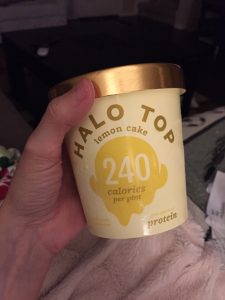 Moderation is making a comeback. More and more health and fitness professionals are espousing its benefits in contrast to the usual fad diets and restrictive eating habits. We’ve learned that wide-reaching overhauls rarely last long term, and often people not only gain back the weight they lost but then some.
Moderation is making a comeback. More and more health and fitness professionals are espousing its benefits in contrast to the usual fad diets and restrictive eating habits. We’ve learned that wide-reaching overhauls rarely last long term, and often people not only gain back the weight they lost but then some.
But what exactly is moderation?
The thing is, moderation looks different for everyone. It depends on our personal preferences, psychological tendencies (do we obsess over numbers? overdo it in certain circumstances?), current health status (any conditions like diabetes or heart disease or autoimmune?), food sensitivities and intolerances, lifestyle, and more.
Some people employ the 80/20 rule and focus on mostly minimally processed foods with a few treats; others count macros so that they can more tightly control intake; some eat intuitively according to hunger cues; others eat “clean” and rarely indulge.
That’s the beauty of moderation — it can mean whatever you want it to mean.

What it doesn’t mean is you can eat everything with no consequence. That’s just silly, right? Everything we eat affects our body, from hormones to hunger and satiety cues to energy and cravings.
But moderation is learning to balance your intake with your output, eating for pleasure and eating for fuel and nourishment, and having a healthy relationship with food.
Now this leaves a lot of leeway in terms of food quality, portions, and timing. There are no real clear cut rules that work for everyone all of the time. For many, this creates a bit of anxiety and stress: “Just tell me what to eat!”
I definitely get this. It’s soooo much easier to cut out entire food groups or follow specific rules. There’s comfort there, with black and white, yes or no decisions. You may not trust yourself around tempting food at a party or at home.
I went through this recently on a doctor-prescribed low histamine diet, which has to be the strictest, most confusing diet ever. Think Whole30 x 1000. There are so many restricted foods (including healthy ones) that it’s easier just to talk about the few things you’re actually allowed to eat. Needless to say, I lost 10# in the first month and another 5# in the second month. Between the major restrictions and the loss of appetite, my caloric intake went waaay down.
I would not recommend this method. At all. It was incredibly miserable and made food and eating super stressful.
Although it was in a sense “easy,” in the respect that I had very specific guidelines and it was all but impossible to overeat because of the limited options, I’m not sure the outcome (weight loss) was worth it. The weight loss was welcome because of the weight I put on over the past year and a half. My clothes fit a lot better. Buuuuttt… the weight loss was so quick that I lost muscle as well. And I felt so crappy that I couldn’t work out more than once or twice per week, and those workouts were a real struggle.
(Update 6/2/18: And shocker, I gained all that weight back within a few months after returning to my regular foods and catching up on what I missed while on the diet — chocolate, coffee creamer, gluten-free bread, wine, cider, peanut and almond butter, cheese, oh my! Uuuuuggghhh.)
This experience has solidified my preference for moderation. Why make yourself miserable if you don’t have to? Why do something so strict that you lose muscle and go off the rails with your eating when it’s over? What gets you your results is what helps you keep your results.
Strict is not sustainable. It’s not flexible. It doesn’t take into account real life.
In contrast, I used a moderation approach when I trained for my first bodybuilding competition 2.5 years ago. I counted macros and made sure that 80-90% of my food intake was made up of minimally processed, nutrient-dense foods like veggies, fruit, lean meats, and healthy fats. For the other 10-20%, I ate whatever I wanted, provided I stayed close to my allotted macros for the day.
Heck, 8 weeks out from the competition, I went on vacation and drank alcohol, ate amazing sushi from one of the foremost sushi chefs in the country, and some other not-so-clean meals (creamy sauce, butter, and sugar, oh my!). Sure, I ate and drank less than what I probably would have in the past (I definitely did not go overboard in any way), but I definitely had enough that I didn’t feel deprived at all.
And I didn’t stress about workouts. I think I did 2 short ones over the course of 6 days, along with some walking. I came home from the trip weighing the same as when I left.
Even taking a moderate approach to my exercise — no traditional steady state cardio other than leisure walks and an occasional HIIT session — was still enough to earn me a 4th place finish in my class. I think if I’d had more help with my posing (soooo awkward! lol) and a darker tan (I looked sooo pale compared to everyone else!), that I could have placed a little higher.

